
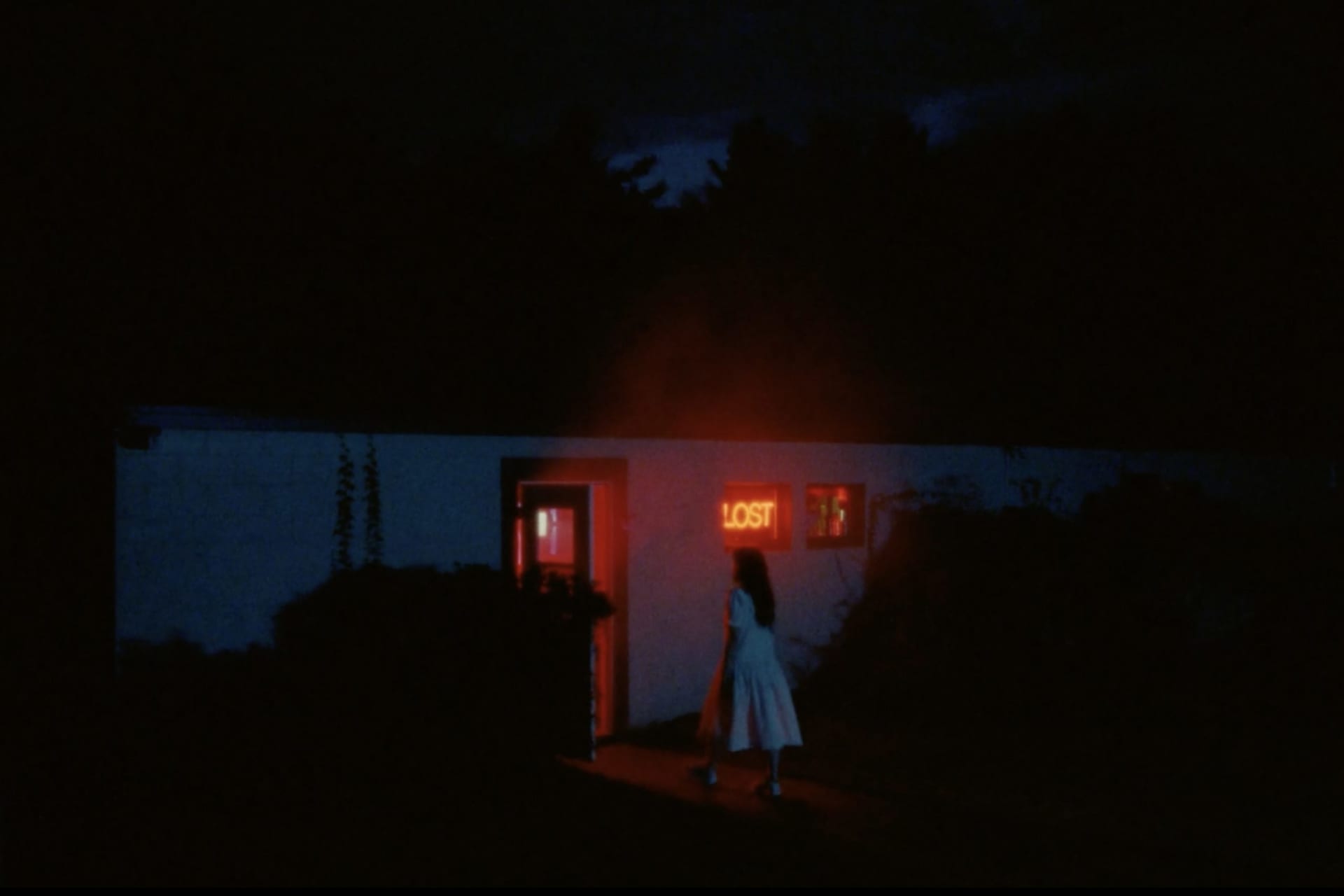
Boy Harsher directed the sultriest horror film of pandemic times
Where are you ready to draw the line between gore and erotic?
Boy Harsher’s dark-wave sound has become a regular dance floor staple, its irresistible cinematic qualities swathing the leathered-up bodies of a generation in universal stories of lust and longing. “I am needing this from you tonight / Your side, your dark side,” Jae Matthews sighs with the voice of temptation in ‘Pain’, the duo’ s 2014 hit, its final lyrics “Pain, I love pain” riding the bridge between 80’s nostalgia and BDSM motifs.
Boy Harsher also makes dark waves beyond the club. Of the durable kind: Gus and Jae painted a sonic refuge that can sugar coat your deepest moments of sorrow. Drawing from the powers of synth pop, new wave and industrial techno, their music has the unique quality that makes them as fit headliners in a concert hall as on a Berghain line-up.
The duo has come a long way since the 2014 release of ‘Pain’ and their first live performances in the small bars of Georgia, USA, to sold out shows in Berlin’s sought-after underground venues. More, they have trademarked an astoundingly balanced songwriting that opposes extreme emotional vulnerability with powerful, biting-cold electronic sounds, all wrapped in a layer of warmth and humanity.
And then there was Careful, an LP-manifesto for sweat & sour rhythms, followed by remixes from techno stalwart Marcel Dettmann and experimental pioneers Rabit and Bonaventure. Midnight-driving poetry in soundwaves, the 2019 album stands in the universe of David Lynch, with an evocative power so strong its listeners will have to try hard not to see a whole road movie unravelling towards the LA sunset.
Two years after the extended-play-turned-full-length Country Girl Uncut, Boy Harsher closes 2021 with a first taste of The Runner, an album in the shape of a soundtrack and horror film they both wrote, produced and directed during lockdown around their home in Massachusetts. After unveiling a haunting lead single, Tower, Muller and Matthews lean back to the universe of dark pop with ‘Give Me a Reason’, further teasing their film’s soundtrack as a journey between cinematic instrumentals and pop territories: as they put it, “our music can be flirty and crushable, and it’s fun to play with that.”
Playing with the lines between fear and attraction, softness and extreme violence, innocence and evil, the film builds on the duo’s love for sharp creative contrasts, and brings them to screen. The Runner is a queer horror picture, in the sense that it sits comfortably on the outside edge of the genre’s tropes whilst peeking in. By denormalizing our classic role expectations of victim and killer, it echoes Renate Lorenz’ definition of “radical drag” in visual arts detailed in Queer Art: A Freak Theory.
The Runner draws the only straight escape route from our deepest contradictions – the things we love to hate, the irresistible pains, our repulsive desires, and other black suns of the human psyche. Will we find redemption at the end of the highway? Nothing is certain but blissful listening. I spoke with Boy Harsher about the chiaroscuros in life and creation that underlie their first directing experience.
This element will show content from various video platforms.
If you load this Content, you accept cookies from external Media.
It’s that reflecting time of the year, since we are now in December. How has 2021 been treating you so far?
Gus: That’s a tough question. If you were to take an average of the whole year, I think we’re doing pretty good. But it was definitely a tough year for us. I mean, you look at last winter, it was a low point. But now that shows are coming back, and we have some new art to share, we’re feeling a bit more optimistic.
And now, The Runner. Your first self-written and self-directed movie…
Gus: Well, we both went to film school, and we worked on projects there. But I guess that’s more of the student film realm, so this is like our first foray into professional filmmaking.
Jae: Probably the biggest project that we’ve created.
You were both film students, and I read that’s how you met. How did cinema drive you to music creation in the first place?
Jae: Our answers to this one, I think, are pretty different. Gus was in school for film, but also sound design. So I’m sure that early on, he knew that it was really important: sound was important, and oral rendering of emotional and cinematic reasoning was what he was studying in school. Meanwhile, I was studying screenplay writing and producing. Technically, we met in school, but also not necessarily. We weren’t really in the same classes together, and the first time we met was at a show, as I saw Gus dancing. So that’s really, in my opinion, when we met. And I think we both wanted to really participate in filmmaking in that form of storytelling, and we were coming at it in different ways. Gus from composing and score, and me from writing and atmosphere. We realized at one point that we could put those efforts into creating music, at least in the beginning, or as more noise-based work.
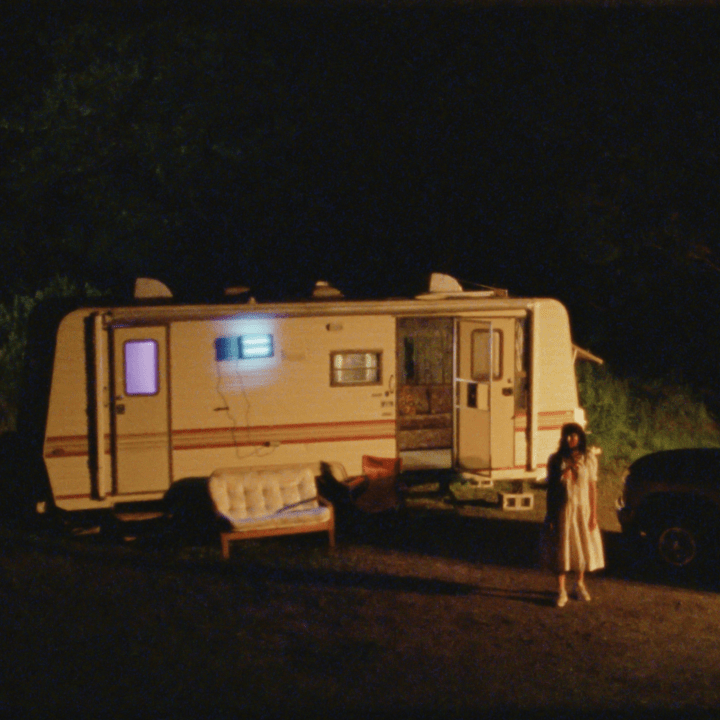
Did it feel eventually natural to come back to film and sound tracking instead of classic production?
Gus Well, I think it’s important to note that we wrote the soundtrack before we wrote the script to the film, so we had these songs, basically The Runner original soundtrack. And there are sort of all over the place: there are vocal features, there’s some more score-like tracks. It’s an eclectic batch of songs, and we were having a hard time finding some cohesion to it. That’s where the idea of the film came from. We actually wrote the script to the songs.
And how would you describe the sound of this LP?
Gus: Good question. I mean, the film is very much a genre piece. It’s a horror film. I think in the same way, the album as a genre piece, either would be like a horror score or a thriller score. But you know, it’s an exploitation.
That story seems to take place in rural North America – you said in Massachusetts. There’s a very long and rich history of horror films in the States and beyond, of course. What were your influences here?
Jae: We managed this one in a really microscopic way, where when we knew we were actually going to make this film, we picked a couple movies that we love. One in particular is this film called Blood Sample, and I think we used it as our play book a bit. It was important to just watch it, and understand how they were able to do visual storytelling in the most practical but poetic way. That was a huge influence, I think. If not on the film, but on our practice for making this film. And we, of course, would take notes from our favourite directors like David Lynch. But I think Blood Sample was the one that was really informing a lot of the process here.





Beyond aesthetics, what inspired the storyline?
Jae: Well, I had this idea about this woman running through the woods, covered in blood. And I thought it would be fascinating to watch this person… You’re concerned that she could be hurt, and you want to know the backstory, or you’re wondering why we’re following her. And then it’s revealed that actually she’s the perpetrator in this scenario. The blood is because of something she’s done to someone else.
Jae, I read in the press release about your MS diagnosis, and I hope you’re feeling okay at the moment. There, you detail how during convalescence, you developed this idea of the lead character. Is this a cathartic way for you to speak about the physical or health related challenges you crossed? Or did it feel any different from, say, your usual inspiration?
Jae: I have always been probably pretty interested in this type of character, and desperation and compulsive behaviour. So I don’t think it began with my diagnosis or my inability to function at that moment. I think that it is related to the fact that I did have to take a studio break, and Gus was working on sounds and Boy Harsher essentially without me. So it’s a way for me to feel like I was creating.
And in your previous album, perhaps this sensitivity was one of the key characteristics of your music, “body music”, as you formerly called it. Did lockdown make your music perhaps less danceable, would you say? Or where do you envision this LP to exist today?
Gus Yeah, I mean, this is a COVID album, as if we were writing this from home, picturing where it would be listened to. Clubs were definitely not in my mind when I was writing these songs. I was picturing them on an LP or on a cassette, or through headphones. So I was putting the emphasis on that when writing.
Themes of this project are perhaps darker or more intense than in your previous productions. In the creative process, did it feel any different or more intense when you were creating the atmospheres?
Jae: It’s interesting that, the album to me does not feel darker. I think the film, which is its companion –to me, they don’t exist without one another– is much darker, right? Because like you said, we do really push violence as this metaphor for heartbreak and bad behaviour. But what’s interesting is outside of the real score pieces, which are a reflection of the on-screen action. A lot of the songs feel much lighter than like normal Boy Harsher to me. But that’s not to say that there are like dance songs. I think what’s really interesting about The Runner as a LP is that there are a couple songs on it that are really working their way into classic synth pop… Gus is maybe going to argue with me, but ‘Autonomy’ for one. The song that has the vocal feature of Cooper Handy as Lucy feels like kind of this really fun moment that could be set right into classic New Order, for example.
Gus: Yes, you’ve got an eclectic batch of songs. You’ve got ‘Tower’, which is definitely like a dark, horror score, but then you have ‘Autonomy’, which is much lighter.
This element will show content from various video platforms.
If you load this Content, you accept cookies from external Media.
Back to the movie: that horror film narrative is mixed with a meta discourse on Boy Harsher’s creative world, and some behind the scenes footage. What was the idea of the concept behind that?
Jae: When we first started working on this project, it really came out of a desire; we were getting a lot of interest in making a live stream, which is something we weren’t really able to conceptualize. So we were like, ‘Well, why don’t we have these parts that are like the behind the music, the live renderings of the songs, and that can be the live stream element of The Runner?’ In the end, when we started really getting knee-deep into production, we realized that the runner in the narrative part of the story was far more interesting to us. So we wanted to include those intimate moments with Boy Harsher, and in the studio in creation, but we didn’t really want those moments to overtake what truly was driving us. And it was this story about this woman.
Do you see yourselves in the runner?
Jae: Of course, I think everyone hopefully should, or everyone would if they understood where we’re coming from. It’s just that feeling you get when you have lost control and your desire has overtaken. The runner is an interesting character because to me, she is tempted by being close to people, having these encounters, and she knows that they aren’t good. Obviously, they aren’t good for the people who are involved, but also for herself. But that knowledge isn’t great enough to prevent her from compulsively taking it again, giving in to that desire. I think that’s a very human experience.
Especially in pandemic times.
Jae: Yeah, absolutely, right? This is the time where you, your engagement with others is now coded as something that could potentially make you really sick.
Exactly. You previously said that you like to make music for longer plays, and that translates of course in your new work. Is the eye-catching format of the film a natural progression to invite your listeners into your musical journey?
Gus: It just kind of seems like the next step. I think we’ve always wanted our albums to have like this narrative side to it, and something that you appreciate as a full story. It seems with Careful we were messing around with music videos that were tied into the same story. This just seems like the next step to then have a film that ties into the album.
Jae: Yeah, we were talking about this last night, I think that if we had the wherewithal and the foresight, we maybe would have made a feature film and then… Been so particular in every asset, meaning every music video we have to release or all the press photos would be of the world. We learned so much, and we did this whole project within like such a limited amount of time, it’s almost unreal. But we now know so much for the future. And when we make our future move, I think we will have some better ideas how to get it together.
This element will show content from various video platforms.
If you load this Content, you accept cookies from external Media.
Another evolution on this album is that you invited some guest vocalists from a broad spectrum of genres, like Mariana Saldaña, or Cooper B Handy. What led you to these collaborations?
Gus: We had a lot of fun doing that, it was definitely a cool way to break out of the slow period we were having, we were doing songs.
Jae: Yeah, there is definitely this pandemic cabin fever moment, where we were having an existential crisis. So I think bringing in friends to alleviate some of that stress, and have a completely new perspective was incredibly helpful, and so fun.
Gus: And that’s what it is, essentially, it’s two friends. We toured with Bowen, with Mariana and Cooper. Handy is a local, whose music we love. So yes, it was just two easy collaborations with friends.
I see you have a very busy live tour schedule ahead. How is The Runner project going to look like on stage? Is it going to be any different from your previous shows?
Gus: Well, the live is always a totally different world. There’s the album, and then there’s the film, and those things sort of relate. But for live, you have to make a whole different vibe and energy, so we’re going to be playing those songs, and we’re playing around with some new things. But I don’t think those exist in the same world.
Jae: I do know what you mean, though. Because if you think of the greats, you think of Fever Ray, when they did that really wild concept album. When they performed around it, they used their motif pieces from the album on stage. That level of production is not where we are yet, but I can’t wait until we get to a place where we have the capacity to create the stage worlds, or just embody the theme live. I. And I think that will be what’s next for sure, and hopefully someday.
That leads me to my final question. What is your biggest hope for 2022?
Jae: Right now, it is true that when you work for yourself, there is just an endless amount of intentions and projects and wants, but I really want to be able to have just one week alone with Gus on vacation. Maybe at the beach, somewhere warm with nice and warm weather. What do you want, Gus?
Gus: I don’t know if I can beat that! Now I’m just gonna sound like a workaholic.
Jae: We’ve been kind of talking a lot about our life, work ethic and how we never stop working. So maybe it’s been on the mind for me.
Gus: I was going to come off on this tangent of all these things I want to accomplish… But I’m excited to travel the world again. I’d love to record another album. I’d love to make another film. And then, yes, I’d love to spend a week on the beach at some point, if that’s in the cards.
Boy Harsher’s The Runner (Original soundtrack) is out on the 21rst January 2022 via Nude Club/City Slang.
Credits:
All visuals courtesy of City Slang.
Words by Marie Dapoigny, Electronic Beats’ senior editor.
Published December 10, 2021. Words by Marie Dapoigny.


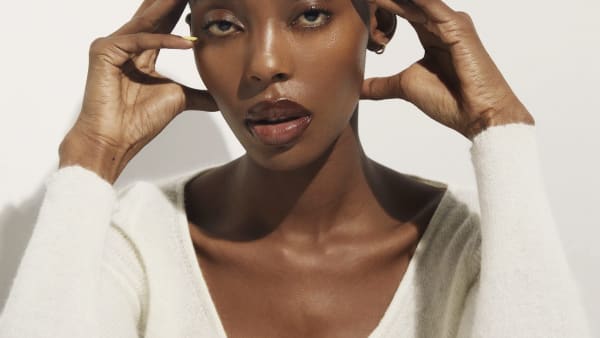


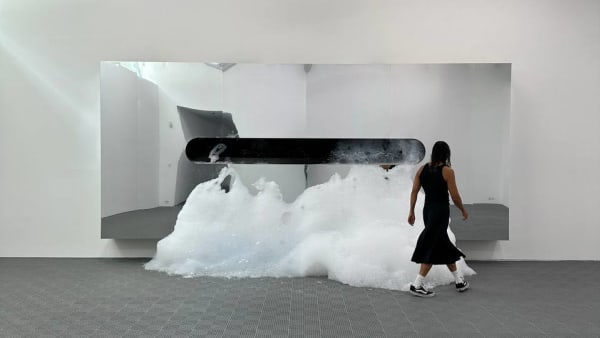

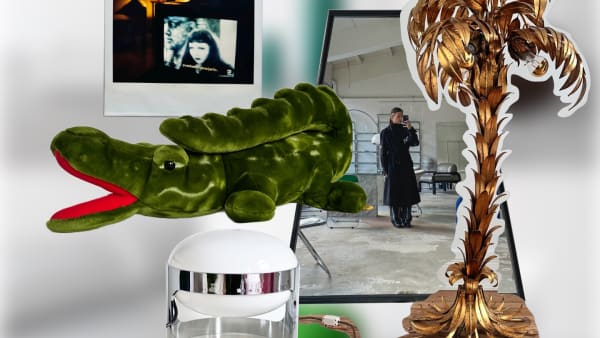




Follow @electronicbeats